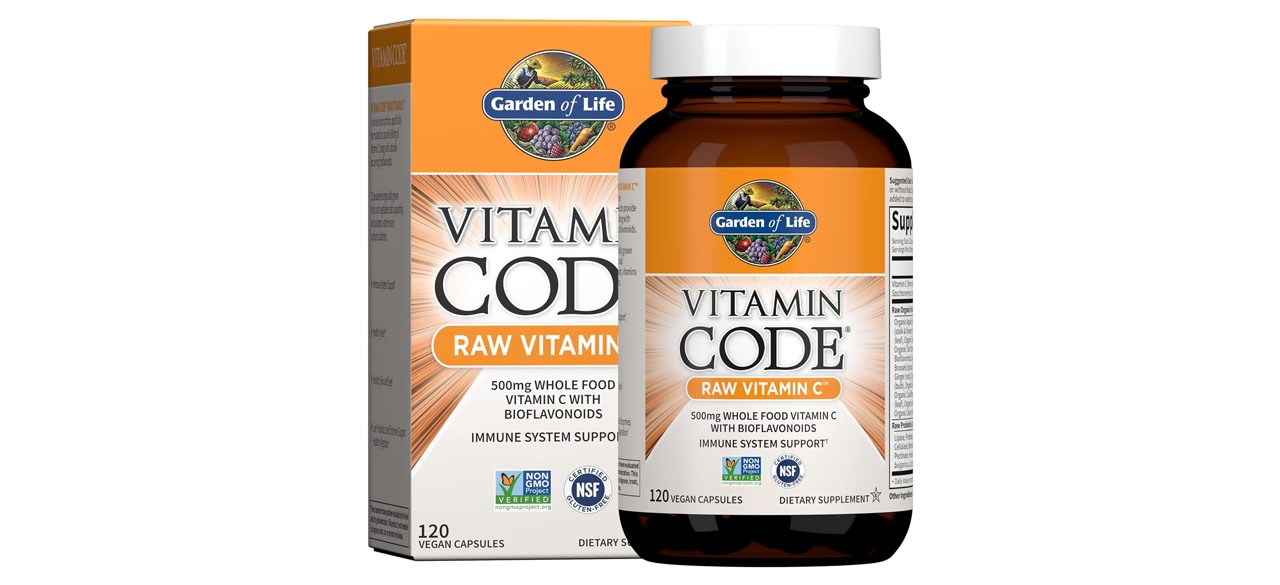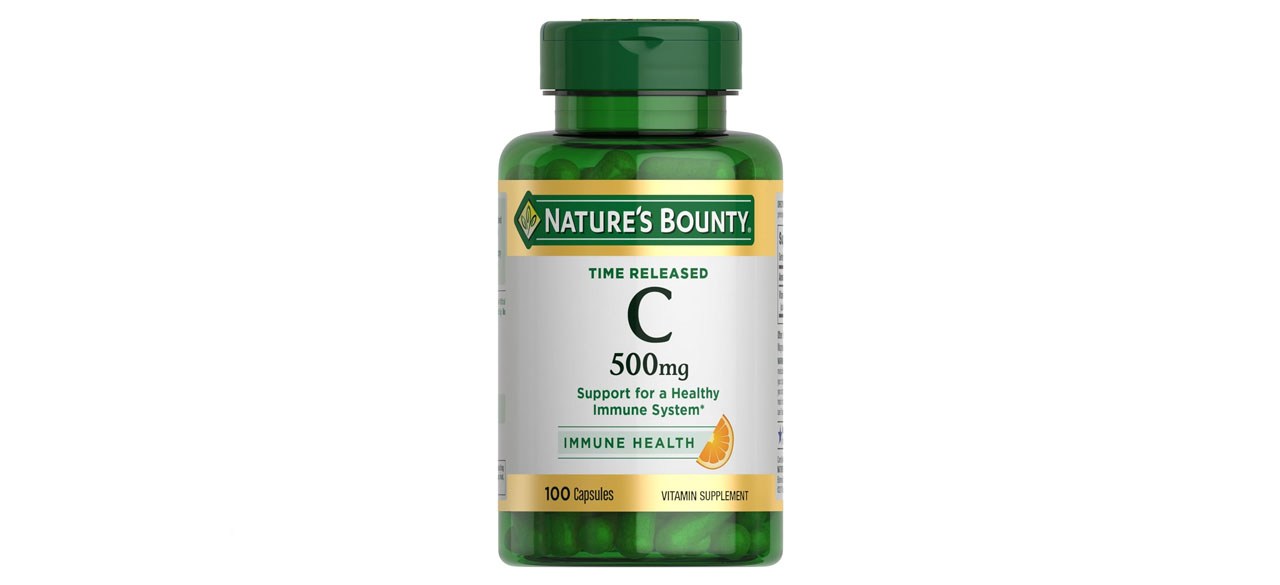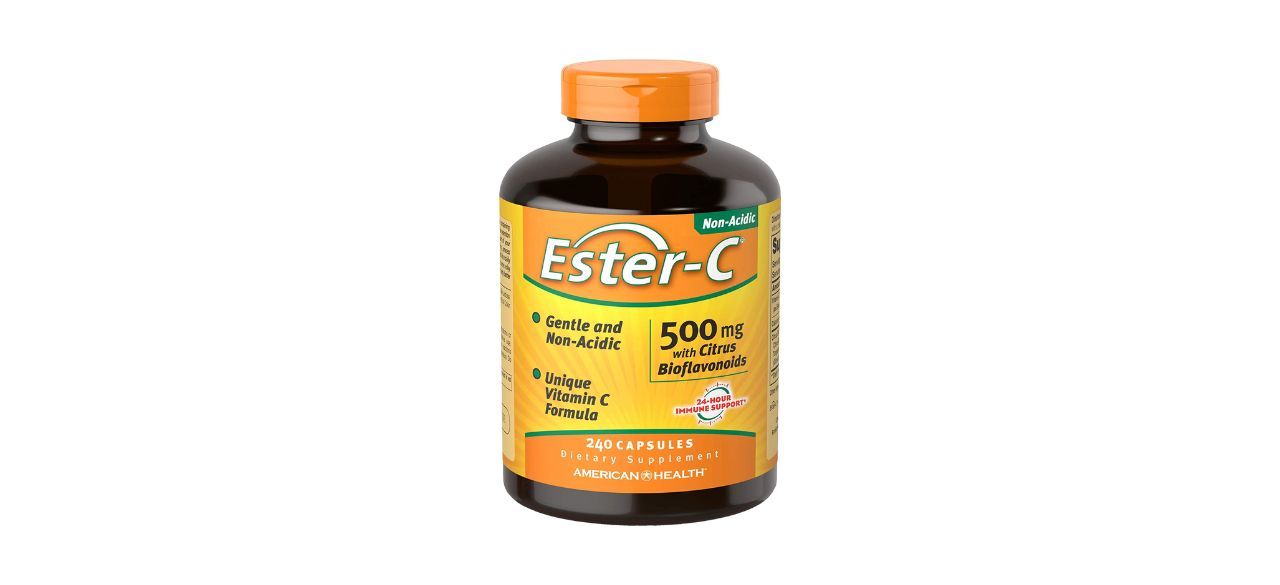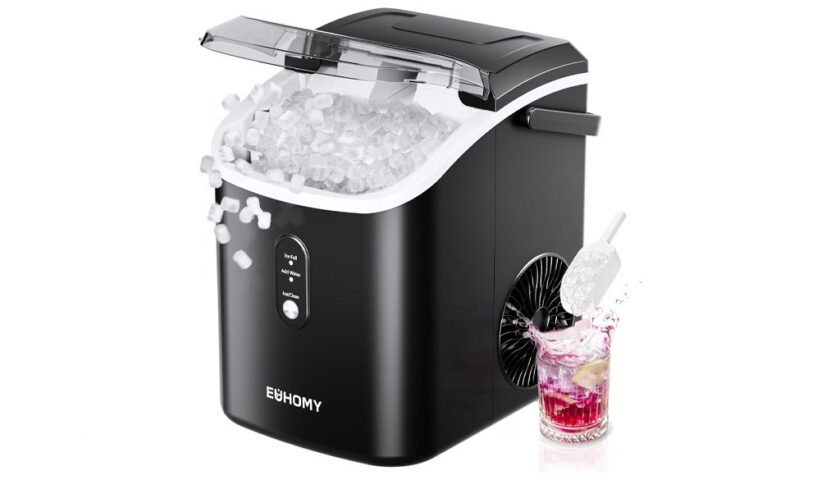Which vitamin C supplement is best?
When cold and flu season rolls around, many of us load up on vitamin C to keep from getting sick. Vitamin C doesn’t just strengthen your immune system; according to the National Institutes of Health, it also works as an antioxidant, aids in wound healing and is vital in collagen and connective tissue formation.
If you’re not getting enough vitamin C from fruits such as oranges and strawberries or vegetables like broccoli and peppers, introducing a vitamin C supplement into your diet can provide health benefits year-round. The best supplement, Garden of Life Vitamin Code Raw Vitamin C, provides a high amount of vitamin C per dose without any fillers or additives.
What to know before you buy a vitamin C supplement
Types of vitamin C
Vitamin C is available in several types. The most common forms found in supplements are ascorbic acid (L-ascorbic acid, L-ascorbate), sodium ascorbate and calcium ascorbate.
- Ascorbic acid is the purest form of vitamin C because it stands alone as an isolated molecule. It’s also the most commonly used form in supplements because it’s easily absorbed by the body.
- Sodium ascorbate is ascorbic acid with a sodium molecule attached to help lessen its natural acidity. It’s an ideal alternative if you find that ascorbic acid causes heartburn or other stomach upset. If you’re monitoring your sodium intake, though, it may be a poor choice.
- Calcium ascorbate combines ascorbic acid and calcium. It reduces the acidity of the ascorbic acid on its own, making it excellent if you have an extremely sensitive stomach or can’t tolerate other vitamin C types due to illness.
In multivitamins that contain vitamin C, you can also find other mineral ascorbates, including zinc ascorbate, magnesium ascorbate, chromium ascorbate, molybdenum ascorbate and manganese ascorbate. Take note of the amount of the other minerals you’re getting in a mineral ascorbate vitamin C supplement to make sure you don’t exceed the recommended daily values.
Additives
You might assume a vitamin C supplement contains nothing but some form of vitamin C, but many formulas include added ingredients. Fillers are often used to help bind a supplement’s ingredients together. However, some fillers and additives are best avoided.
Stay away from vitamin C supplements that contain:
- Hydrogenated oils.
- Artificial colors.
- Titanium dioxide.
- Magnesium stearate.
- Added sugar.
Dosage
Vitamin C supplements come in dosages usually ranging from 25 to 1,500 milligrams. You typically shouldn’t take more than 2,000 mg of vitamin C per day because your body only absorbs so much at a time. Vitamin C is water-soluble, so your kidneys flush out the excess. This is why it’s best to take smaller doses of vitamin C throughout the day rather than a single large dose.
What to look for in a quality vitamin C supplement
Supplement form
Vitamin C supplements come in several forms, though the most common are powder, chewable tablets, pills, capsules and gummies. All forms can effectively deliver vitamin C, but some are harder on the stomach than others.
Pills and capsules often cause nausea, so you may prefer chewable tablets or gummies, which usually have a tasty fruit flavor. Powders are often easier to digest, too, but you have to mix them with a liquid and drink the mixture.
Delayed, timed or sustained-release formula
Vitamin C supplements come in several formulas that affect how your body absorbs the vitamin C.
If you’re having trouble remembering to take a few small doses throughout the day, delayed, timed or sustained-release capsules are an excellent option since they don’t release their dosage all at once. The capsules have a coating made of fat, sugar and wax that breaks down and slowly releases the vitamin C at its center, so you get a small amount at a time.
Vegan
If you aren’t comfortable consuming animal products, choose a vitamin C supplement certified as vegan. Supplement capsules not certified vegan may contain gelatin derived from animals.
How much you can expect to spend on vitamin C supplement
You can pay 5 to 10 cents per dose in pill, capsule, tablet or gummy form. Powdered supplements generally cost $12-$20 per pound.
Vitamin C supplement FAQ
How much vitamin C should I take per day?
A. Doctors don’t advise taking more than 2,000 milligrams of vitamin C daily, though 60 to 90 milligrams is usually the recommended daily dose. You won’t run into safety issues if you take too much the way you might with other vitamins, but an excessive amount of vitamin C may cause nausea, vomiting, diarrhea and cramps.
Can vitamin C really help fight off a cold?
A. Vitamin C helps support the immune system. It may not keep you from getting sick, but it may shorten the duration or lessen the severity of your symptoms since vitamin C helps produce and protect white blood cells, which help fight infection.
What’s the best vitamin C supplement to buy?
Top vitamin C supplement
Garden of Life Vitamin Code Raw Vitamin C
What you need to know: This extremely potent vitamin C supplement is ideal for those who want a high dosage.
What you’ll love: It offers 500 mg of vitamin C per capsule and doesn’t contain any dairy, gluten, soy, binders or fillers. It can be taken with or without food. The bottle provides a two-month supply.
What you should consider: The capsules are slightly large, making swallowing difficult.
Top vitamin C supplement for the money
What you need to know: These solid, affordable vitamin C tablets are easy to swallow and laboratory tested.
What you’ll love: Manufactured by a respected supplement brand, they’re free of artificial flavors and colors. They feature a vegetarian formula and 500 mg of vitamin C per tablet and are easy for most to swallow.
What you should consider: Some buyers receive bottles with broken tablets.
Worth checking out
American Health Ester-C with Citrus Bioflavonoids
What you need to know: This powerful vitamin C supplement is absorbed quickly and is unlikely to cause stomach upset.
What you’ll love: It boasts an acid-free formula with 500 mg per capsule and supports immune health without upsetting the stomach. Bioflavonoids help with absorption, and this supplement doesn’t contain animal products or artificial ingredients.
What you should consider: The capsules are large, so they can be tough to swallow.
Prices listed reflect time and date of publication and are subject to change.
Check out our Daily Deals for the best products at the best prices and sign up here to receive the BestReviews weekly newsletter full of shopping inspo and sales.
BestReviews spends thousands of hours researching, analyzing and testing products to recommend the best picks for most consumers. BestReviews and its newspaper partners may earn a commission if you purchase a product through one of our links.
Distributed by Tribune Content Agency, LLC.







